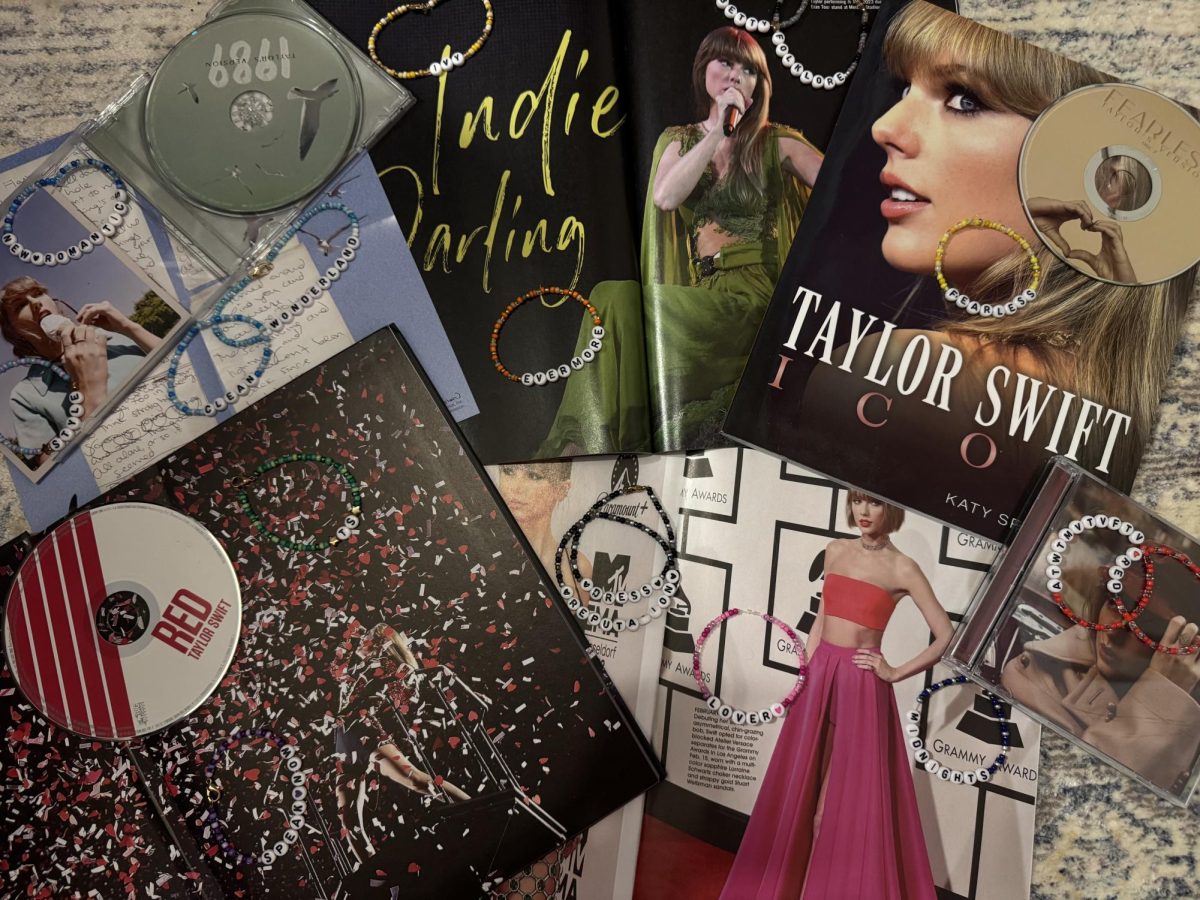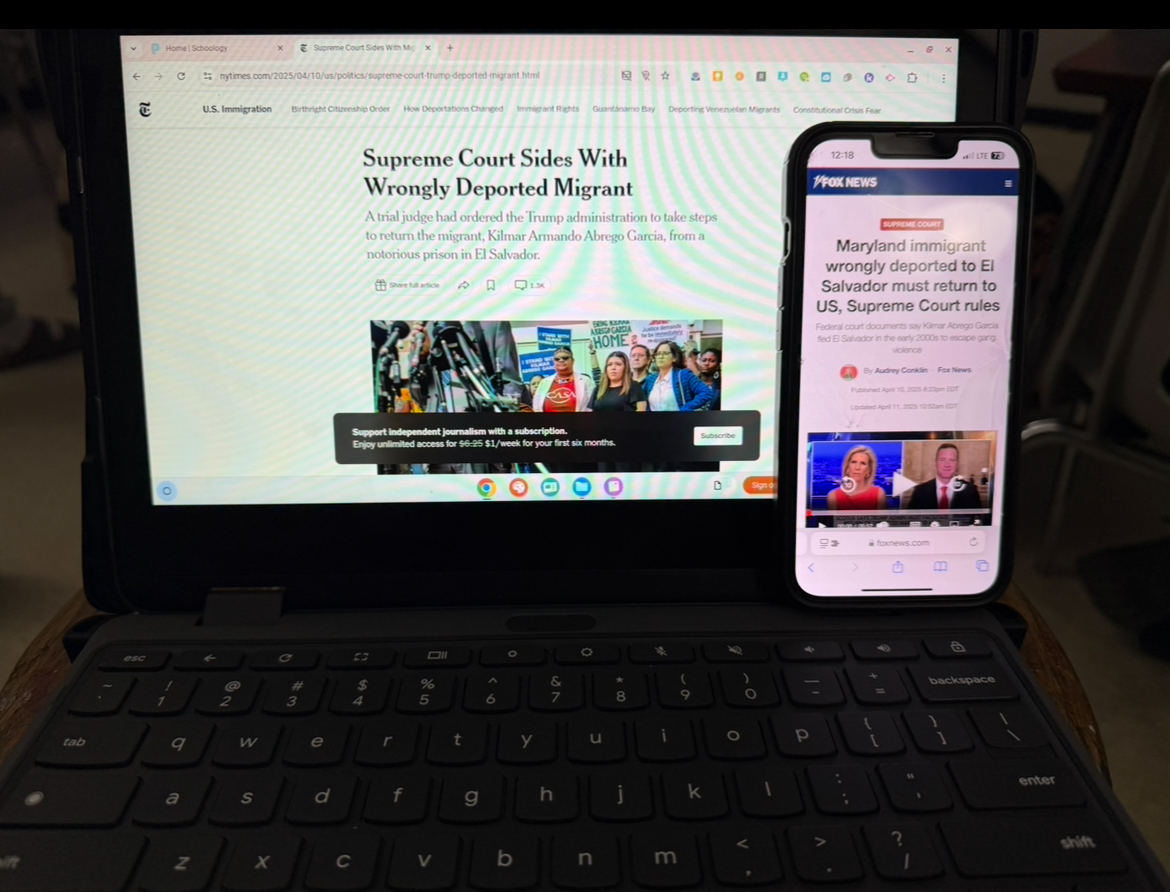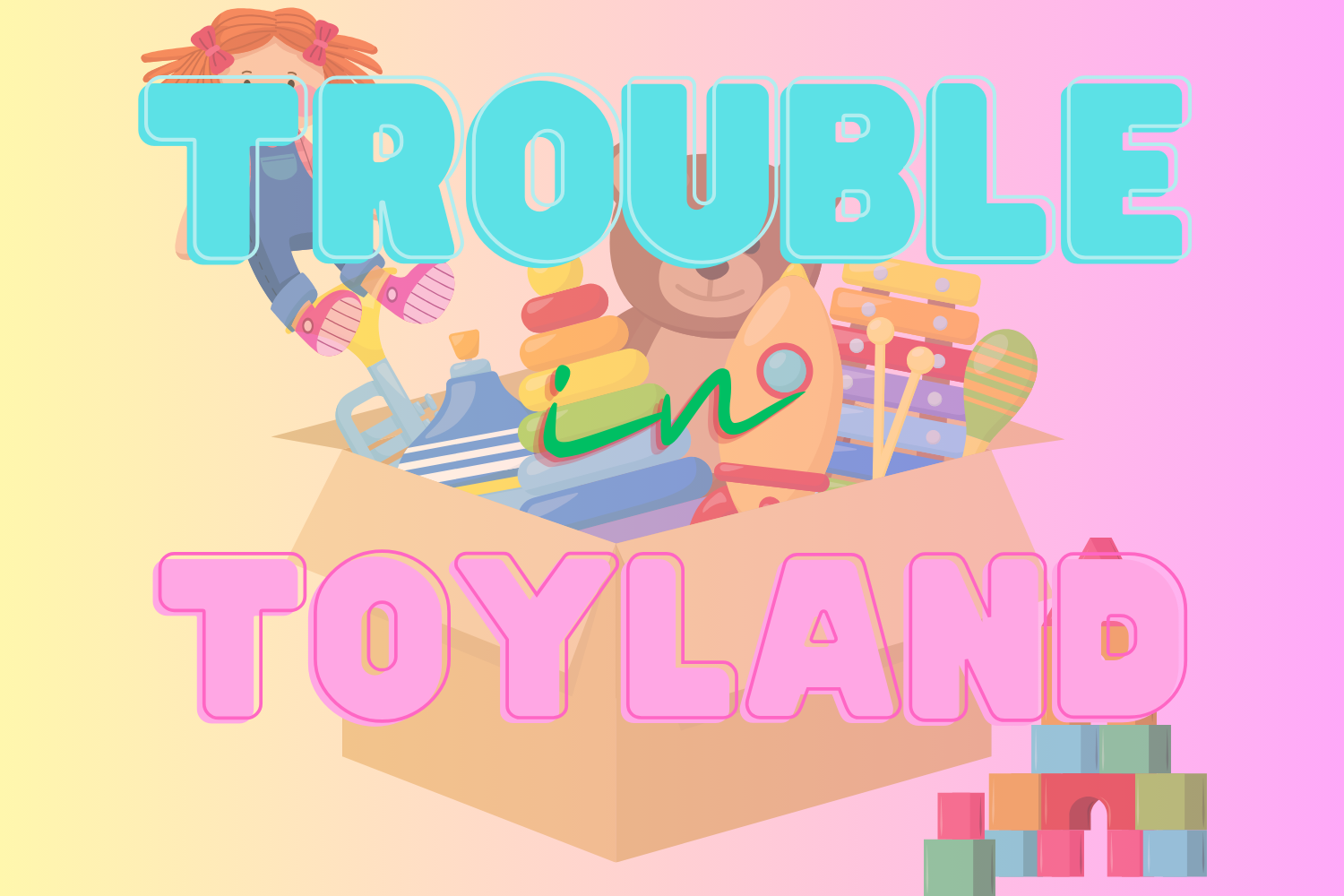

Christmas is just around the corner, and that means stores will be packed with shoppers buying presents for friends and loved ones. There is one question many companies seem to have in mind when making and selling their products: What gender are you shopping for? Gendered advertising and products can be found in every store and corporation, and even received by someone you may know.
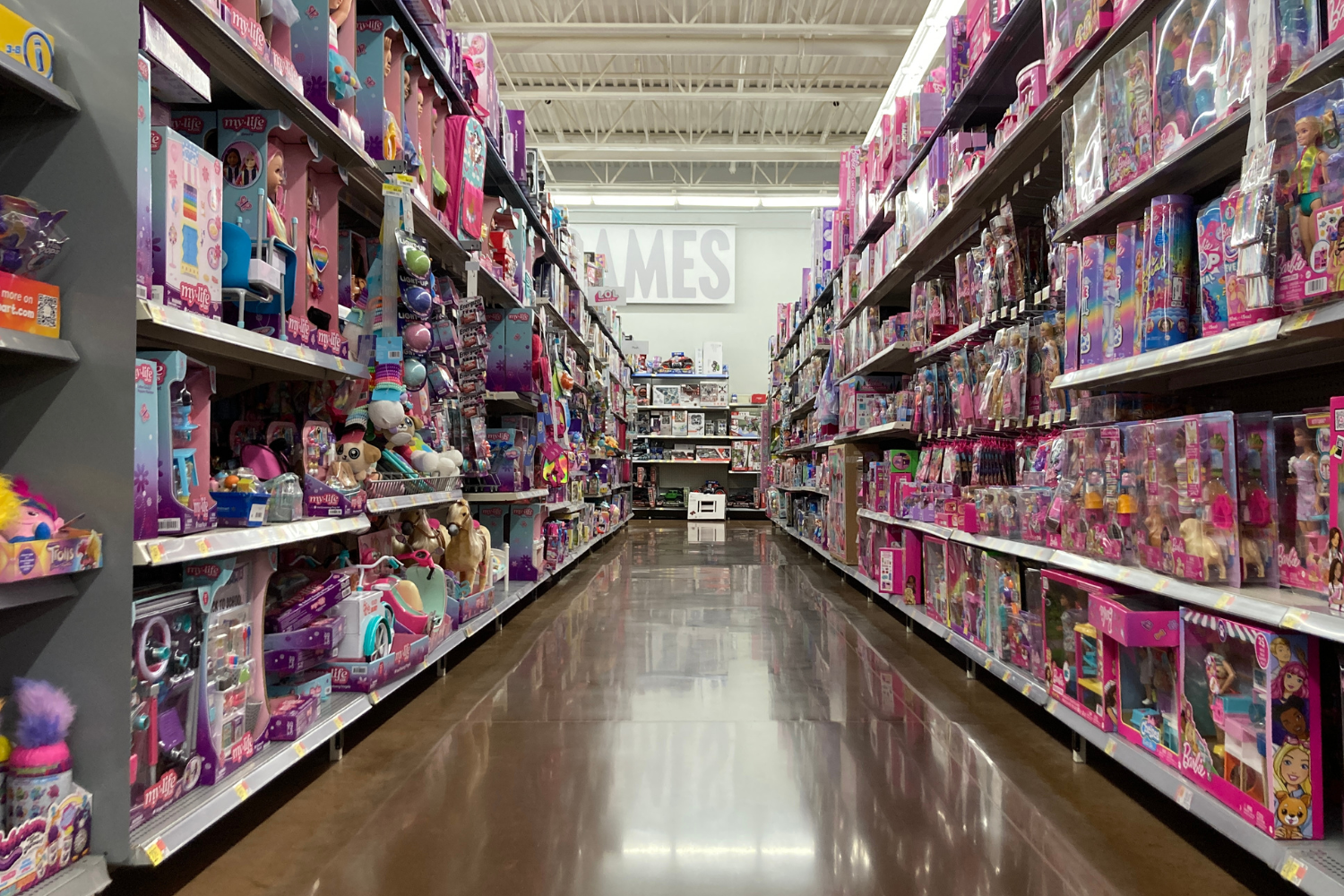
“My daughter definitely does. She’s a dancer, and so she’s considered to be girly, and it drives her crazy,” Wheeling Park math teacher Mrs. Crews said. “Having a son and a daughter, you see all the boys get all the building toys like Legos and Lincoln Logs… and the girls get the dolls and the fake makeup and the dress-up clothes.”
But it’s not just her children who are affected by gendered products.
“As a woman, I can tell you that women’s products that compare to men’s products are always more expensive because they try to make it so that it fits the pink tax. And it’s ridiculous. So we do buy a lot of men’s razors and those kinds of things because they’re cheaper and they do the same thing,” said Crews
Lilah Jidestig, a student at Wheeling Park, shared her opinion on the matter: “I think it’s absolutely disgusting that they have higher prices for women’s products. I think that’s very immature. That stuff should be the same for both parties.”
As a kid, she often received Barbies for Christmas, despite never wanting them, and her brothers were also gifted sports-related presents.
“It took a while for my parents to realize that they were not really into that… I feel like when people don’t know who you are, they automatically assume what you’re into based on outside views like gender or what they see you as. They just automatically link that to specific things they think you’ll like and expect you to like it.”
She went on to suggest, “Rather than having it ‘for her’ or ‘for him’ or whatever, you could just sell hygienic products or just sell razors and just list what they’re good for… with scents, I think the description between womens’ perfume and mens’ cologne is really weird. It shouldn’t matter. You should just be able to pick a scent regardless of who it’s for.”
Another student, Wilkie Pavilack, can relate. They often got toys that would stereotypically be gifted to men, when they would have preferred other presents such as jewelry.
However, more often than not they see jewelry advertised towards women and other gendered products such as shoes specifically for men “that would be cool for one but not both.” Their response?
“Just let kids have their fun. Some stuff I feel like maybe it’s good for, but that would be very, very specific stuff like clothes… If it doesn’t need to be gendered, why gender it? Why raise the price depending on the gender, anyways?”
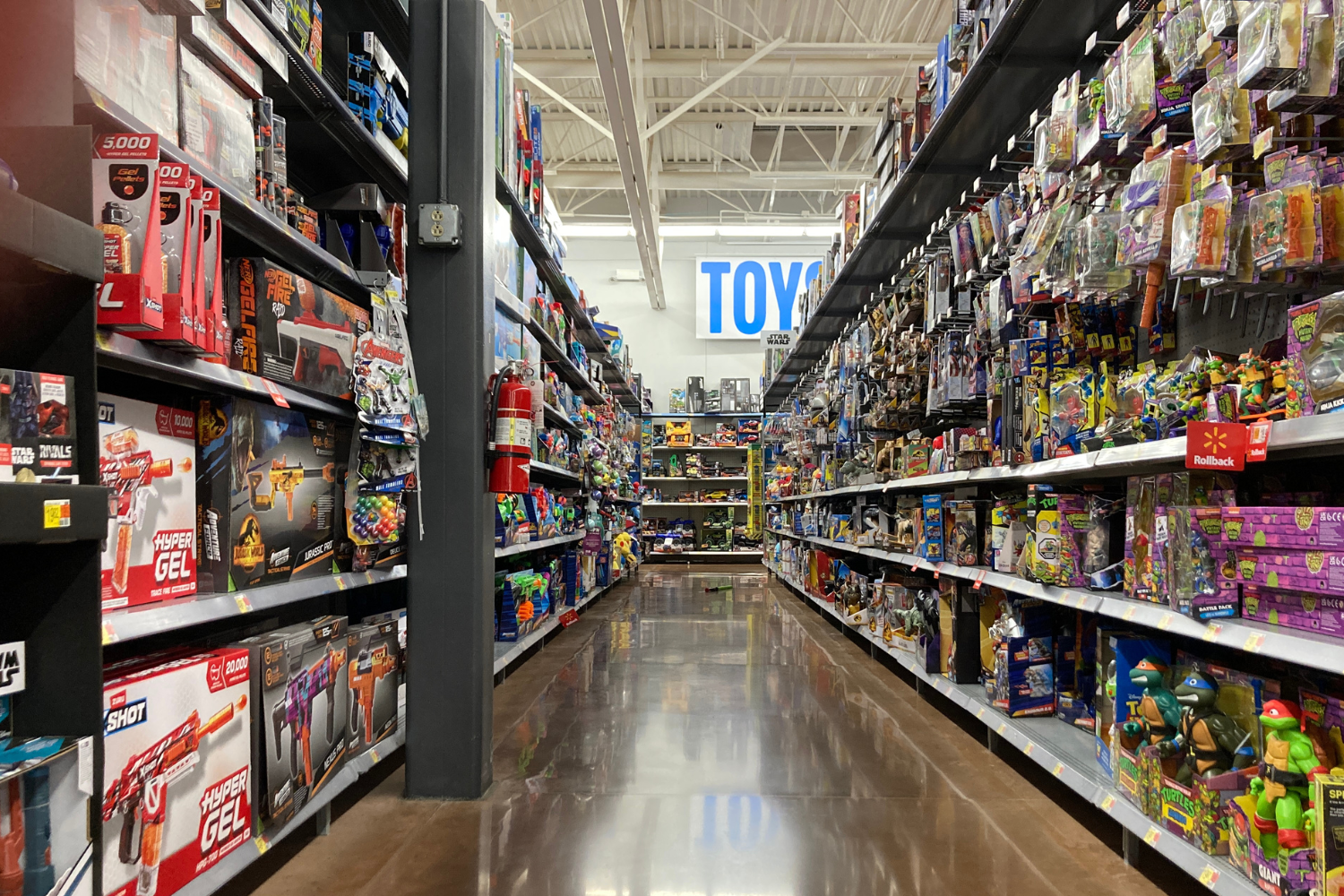
There are many cases of the prices of women’s products being raised despite doing the same thing as a product advertised to men. An infamous example is “Bic for Her,” released in 2012 by the pen company Bic. Other than coming in pastel colors and being marked “for Her” on the packaging, they did the same thing any other Bic pen did, however, they cost up to 70% more than the usual pen.
“That’s absolutely ridiculous to me,” Mr. Doyle, the principal of safety, said. “I, personally, sign a lot of things. I love using different colors. I grab whatever pen’s on my desk. A pen color isn’t labeling of who I am or what my beliefs are or anything like that. And to me, it’s absurd to try to label any person based on that type of ridiculous stuff.”
In Mr. Doyle’s large family, they have a gift exchange every year. However, not everyone gets what they might be wishing for.
“Sometimes we get family from out of town that doesn’t know the cousins very well. And so, rather than reaching out and trying to learn about them, they kind of… stereotype a bit and get stuff that a stereotypical male or female would prefer,” said Doyle.
He stated that it’s understandable for businesses to market towards a specific gender that may be the dominant one using a product.
“I completely understand from the business side of things… I don’t know if I see too much wrong with it at this point. But I do understand. We need to make sure that all of these things are open to everybody, no matter what.”
Student Xavier Robbins would agree. “If it’s more of a manly thing to do or more womanly thing, it’s okay, but if it’s for both parties, it should be for both female and male. Some examples he gave are “oil and stuff, like oil rigs, especially men do those jobs… and I feel like daycares are more for women because they know how to take care of children better than men do.”
He believes if it costs more money to make a product, then the price should be raised, but “if it’s a Barbie doll or something meant for a girl, I feel like it should be the same [price] if a boy wants it, or if it’s a dude version of it.”
Not all companies see it this way, however, and even mark up the prices for products that may be geared toward the other gender.
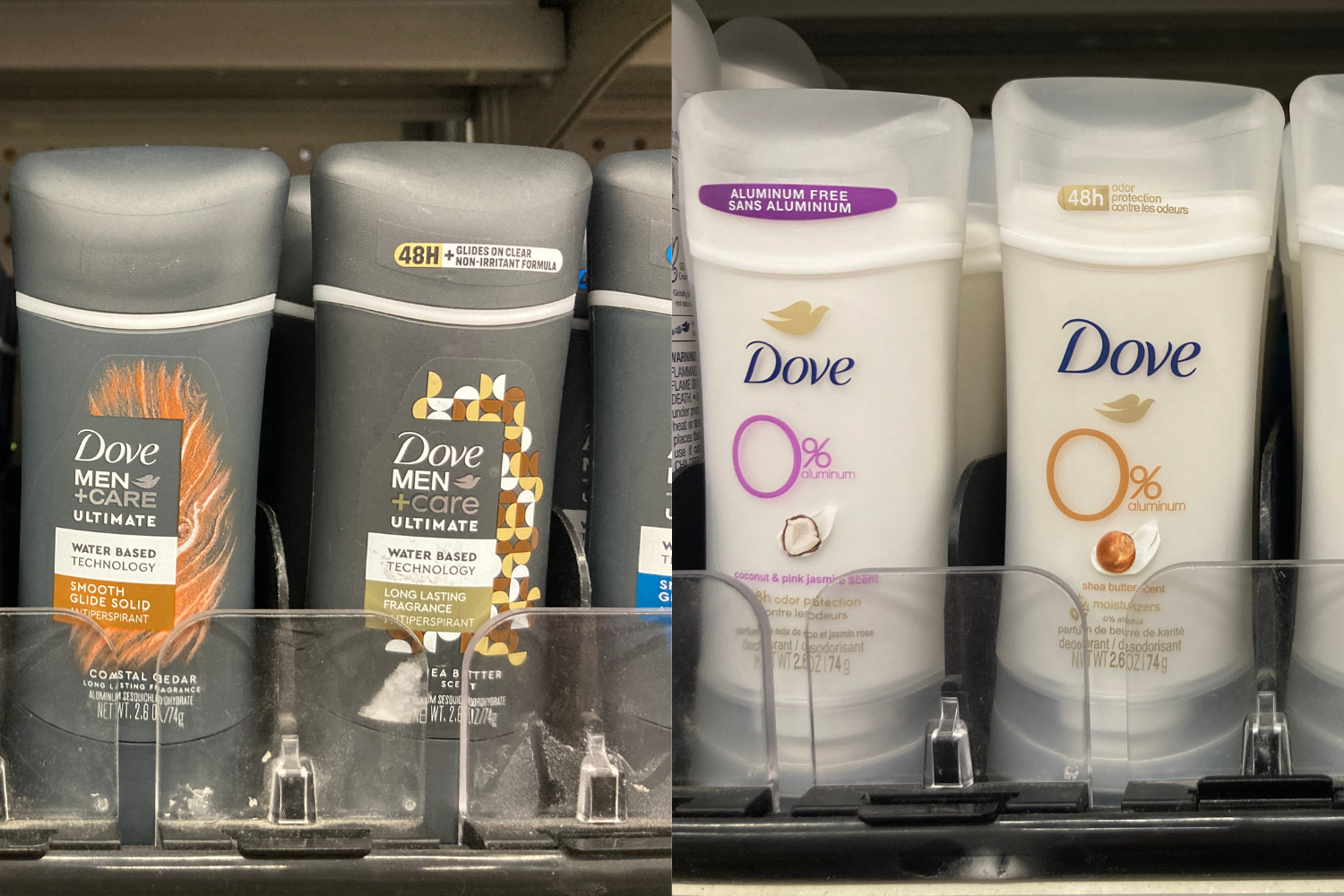
“I’m a child of the 80s… Looking back in [my] childhood, they did have Ken dolls with Barbie dolls, and those, typically, were more expensive because they call them collector’s items,” Mrs. Seals, an English teacher at Wheeling Park, said. “Were they just discouraging girls from buying Kens, or boys from wanting a doll? I don’t know… Not a fan of that.”
She believes that there’s been a shift in gendered advertising over the past 10 to 15 years.
“When my oldest child was born, it was still very gendered. My son always wanted dinosaurs or Thomas the Train or airplanes, stuff like that. But my younger son, who’s five years younger, I think by that point, it had started shifting. My younger son often wanted pretty princess items. He loves the Tony Awards. He wants to watch Broadway. He would dress in dress-up at daycare. And that was embraced.”
Freshman, Erin Elswick, encounters gendered advertising “probably every day… there’s a bunch of different soaps that are directed towards the different types of smells like more masculine and feminine.”
As a kid, she also received gendered presents such as dolls, but she personally wanted them.
“Sometimes I think it’s okay. If you’re advertising toys for Christmas or something, they’re just kids and they probably don’t know everything yet. But other times, if you’re a teenager or an adult and they’re advertising feminine or masculine soap, I don’t really think that’s okay because it’s just soap, everyone can use different soaps.”
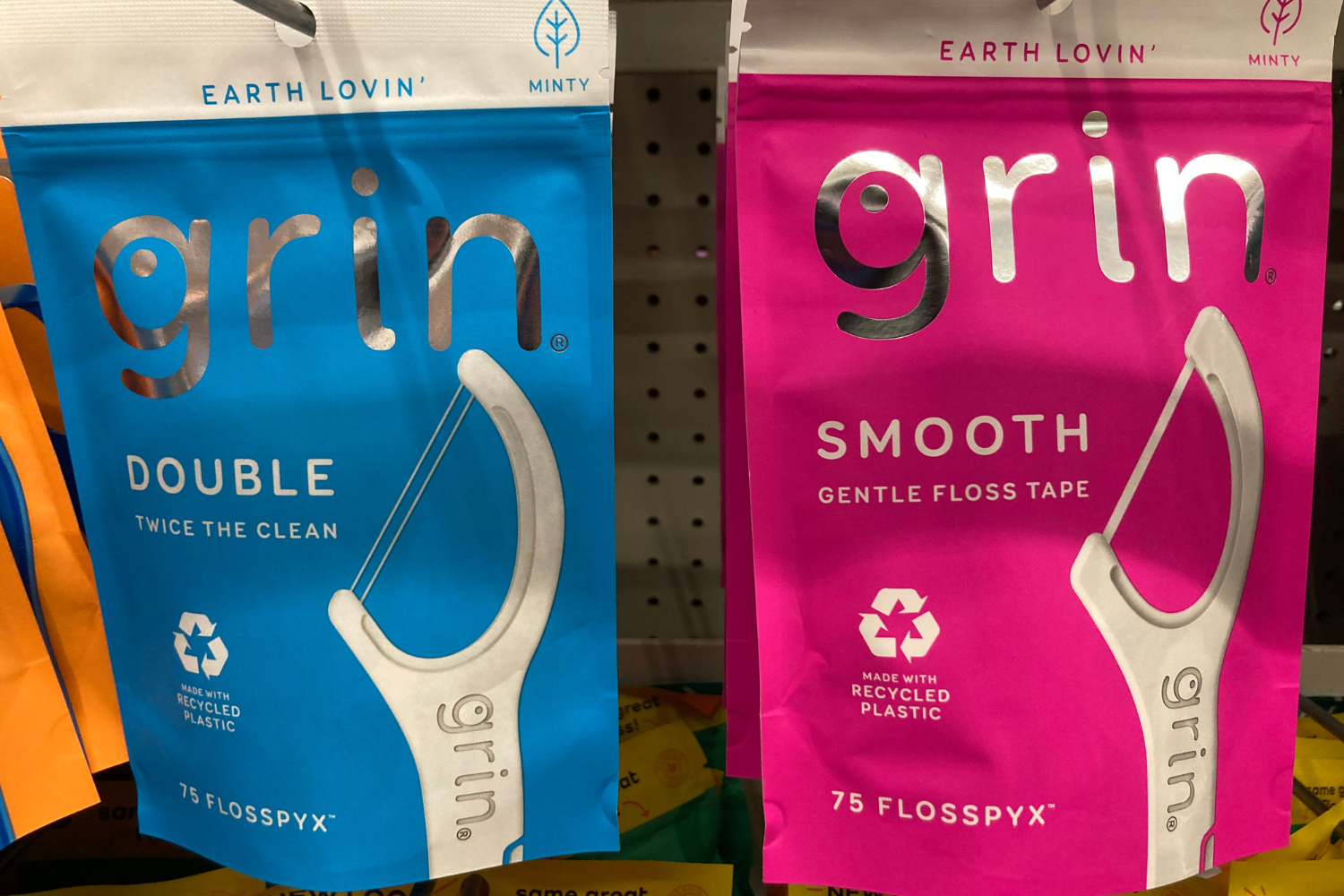
I went around to various stores and scanned their shelves for gendered products and advertising. There were gendered soaps, deodorant, razors specifically targeted at men or women, and subtly gendered floss, chapstick, nail products, and even glasses – not outwardly stated to be for a specific gender, but the packaging and marketing made it obvious who it was geared towards.
I also found some packs of three men’s razors for as low as $3.97 and a pack of six women’s razors for as much as $19.97. Comparing the advertising, the women’s razors focused more on being flashy and showing off how many razors you were getting and the benefits with a soft, light-colored design, while the men’s were centered around what the product was and simple, clean advertising with sharp, dark colors.
However, some people don’t notice these sorts of things as much as others.
“I can’t say I [encounter gendered advertising] very often,” Wheeling Park teacher Mr. Stanton said. “But in social studies, we’re doing a holiday toy drive. And that is actually something that I’m going to start thinking about because even when [people are] shopping for the toy drive, they get a doll, or they get the Matchbox cars or the monster truck… When these toys have to be distributed, they need things that are a little bit more neutral or just understanding of the different children that are out there and how they identify.”
He also said that when shopping for presents for his sister, he generally sticks to more feminine products and strays away from things that are male-oriented. “I think it’s automatic… I’ve never really even thought about it until this conversation. And I think now I’m going to be a little bit more observant when I do shop or just when I’m seeing stuff in stores in general.”
Your donation will support the student journalists of Wheeling Park High School. Your contribution will allow us to purchase equipment and cover our annual website hosting costs.


